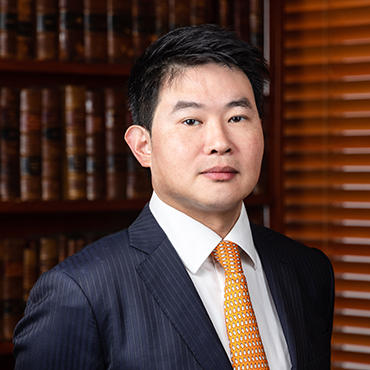Chow Hang Tung v Secretary for Justice [2022] 4 HKLRD 183, [2022] HKCFI 2225 (Philip Dykes SC, Albert NB Wong)
Philip Dykes SC, leading Albert NB Wong, represented the applicant in Chow Hang Tung v Secretary for Justice [2022] 4 HKLRD 183, [2022] HKCFI 2225.
X, together with three others, were charged with one count of “incitement to subversion”. The prosecution sought a committal of the defendants to the Court of First Instance for trial. Committal proceedings are restricted from being reported under s.87A(1) of the Magistrates Ordinance (Cap.227). X made an application to the Principal Magistrate asking that the reporting restrictions be lifted pursuant to s.87A(2) of the Ordinance. The Magistrate refused the application (the Decision) on the basis that he had a discretion to do so in the interests of a fair trial, given the unique features of the case including widespread media attention and potential problems with maintaining court discipline and pressure on witnesses if the application was allowed. X then sought to challenge the Decision by way of judicial review. Section 87A(2) relevantly provides that, for the purpose of committal proceedings, “Notwithstanding subsection (1), a magistrate shall, on an application … by the accused …, order that subsection (1) shall not apply to reports of those proceedings …”. At issue were: (i) whether the first “shall” in s.87A(2) bore its plain and literal meaning so that it imposed a mandatory duty on the Magistrate to lift the reporting restrictions upon an application by an accused pursuant to that subsection; (ii) if the Magistrate had a discretion, whether he had taken into account irrelevant considerations or had failed to take into account relevant considerations in coming to the Decision.
Held, allowing the application, quashing the Decision and granting an order of mandamus that the Magistrate shall make an order to lift the reporting restrictions when X next appeared before him, that:
- (1) Section 87A(2) of the Ordinance should bear its plain and ordinary meaning. The major object of the reporting restrictions was to protect an accused from pre-trial adverse publicity which may affect the future jury. For this reason, the accused, not the prosecution, was given the right to waive this protection. A purposive and contextual interpretation and a consideration of the case law pointed in unison to the conclusion that s.87A(2) meant what it said in that the magistrate was at the instance of the accused under a mandatory duty to lift the reporting restrictions imposed by s.87A(1). A mandatory “shall” was consistent with the usage of that word in the other parts of the Ordinance relating to committal proceedings. The Decision was ultra vires in that the Magistrate purported to exercise a discretion which did not exist (HKSAR v Chan Chun Kit [2022] HKCFA 15 applied; R v Russell, ex p Beaverbrook Newspapers Ltd [1969] 1 QB 342, R v Bow Street Magistrate, ex p Kray (Reginald) [1969] 1 QB 473, R v Blackpool Justices, ex p Beaverbrook Newspapers Ltd [1972] 1 WLR 95, R v Horsham Justices, ex p Farquharson [1982] QB 762 considered). (See paras.32-58.)
- (2) Even if a discretion existed under s.87A(2), the Decision would still be flawed since the Magistrate failed to take into account relevant considerations and it was not demonstrated that the reporting restrictions were “strictly necessary” in the circumstances (Asia Television Ltd v Communications Authority [2013] 2 HKLRD 354 applied). (See paras.63-65.)
[The above is excerpted from the headnote to the report in HKLRD.]



